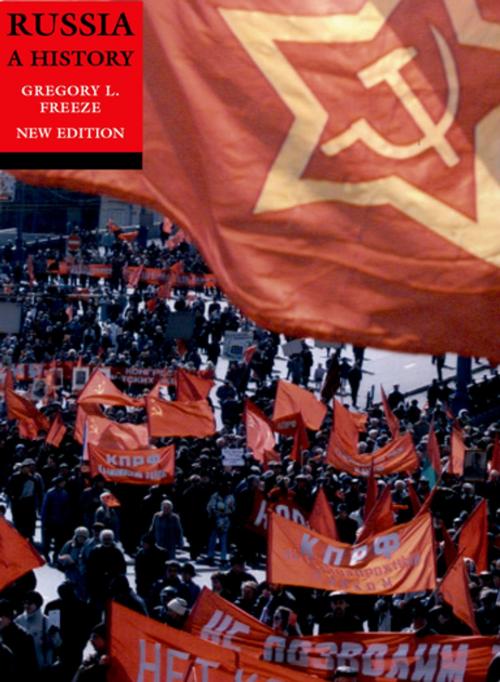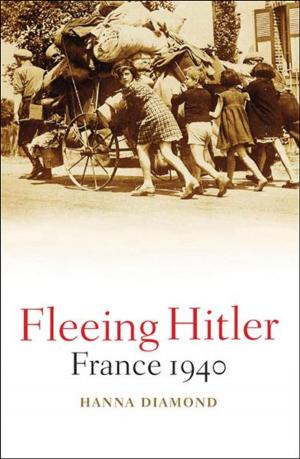| Author: | ISBN: | 9780191622496 | |
| Publisher: | OUP Oxford | Publication: | March 28, 2002 |
| Imprint: | OUP Oxford | Language: | English |
| Author: | |
| ISBN: | 9780191622496 |
| Publisher: | OUP Oxford |
| Publication: | March 28, 2002 |
| Imprint: | OUP Oxford |
| Language: | English |
From the formation of the Russian state in the 14th century to the political power struggles of the 1990s and the uncertainties of the new millennium, this new history offers a fresh and systematic account of Russian history across six tumultuous centuries. With greater access to previously unobtainable material, and with the gradual depoliticization of what was once an intellectual Cold War battleground, historians are now able to tell the story of Russia more dispassionately and with greater precision than was formerly possible. Drawing on the best contemporary scholarship, and informed throughout by the latest archival research into previously classified sources, thirteen international experts here reassess and reinterpret the history of one of the world's great powers. What emerges is a powerful sense of national destiny - of repeated themes, unchanging conditions, and cycles of circumstance. Throughout Russian history, all-powerful autocrats like Ivan the Terrible or Stalin have maintained their authority through brutality; but their omnipotence was always under threat, circumscribed by geography, compromised by bureaucratic incompetence, pervasive corruption, and resistance from below. A curious combination - a veneer of omnipotence, a void of operational power - has periodically dissolved into 'times of trouble', as in 1598, 1917, and 1991, when the impotence of the regime became transparent to all. Russian rulers have also had to contend with the same immense physical challenges - a hugely dispersed population, a perennial dearth of means and men to govern, a primitive infrastructure. Plagued by natural disasters, hamstrung by structural problems, the Russian economy - whether pre-revolutionary capitalist, Soviet socialist, or post-Soviet semi-capitalist - has had enormous and disruptive difficulties adapting to the competitive world of international markets. Another immutable, elemental fact has been Russia's multinational composition, which continues to generate discontent and disorder. Yet Russia is a great survivor, as the years from 1995 show, charaterized by economic recovery, institution-building, and a new mood of self-assertion in world politics. For too long Russian history has been dominated by myths and counter-myths, concocted by those seeking either to legitimize the existing order or to destroy it. This book - containing many little-known illustrations - represents an important attempt to rethink Russian history and to provide a new understanding of Russia's complex but ever-fascinating historical development. A compelling story in its own right, it is also essential reading for anyone with a private or professional interest in Russia and its place in the world.
From the formation of the Russian state in the 14th century to the political power struggles of the 1990s and the uncertainties of the new millennium, this new history offers a fresh and systematic account of Russian history across six tumultuous centuries. With greater access to previously unobtainable material, and with the gradual depoliticization of what was once an intellectual Cold War battleground, historians are now able to tell the story of Russia more dispassionately and with greater precision than was formerly possible. Drawing on the best contemporary scholarship, and informed throughout by the latest archival research into previously classified sources, thirteen international experts here reassess and reinterpret the history of one of the world's great powers. What emerges is a powerful sense of national destiny - of repeated themes, unchanging conditions, and cycles of circumstance. Throughout Russian history, all-powerful autocrats like Ivan the Terrible or Stalin have maintained their authority through brutality; but their omnipotence was always under threat, circumscribed by geography, compromised by bureaucratic incompetence, pervasive corruption, and resistance from below. A curious combination - a veneer of omnipotence, a void of operational power - has periodically dissolved into 'times of trouble', as in 1598, 1917, and 1991, when the impotence of the regime became transparent to all. Russian rulers have also had to contend with the same immense physical challenges - a hugely dispersed population, a perennial dearth of means and men to govern, a primitive infrastructure. Plagued by natural disasters, hamstrung by structural problems, the Russian economy - whether pre-revolutionary capitalist, Soviet socialist, or post-Soviet semi-capitalist - has had enormous and disruptive difficulties adapting to the competitive world of international markets. Another immutable, elemental fact has been Russia's multinational composition, which continues to generate discontent and disorder. Yet Russia is a great survivor, as the years from 1995 show, charaterized by economic recovery, institution-building, and a new mood of self-assertion in world politics. For too long Russian history has been dominated by myths and counter-myths, concocted by those seeking either to legitimize the existing order or to destroy it. This book - containing many little-known illustrations - represents an important attempt to rethink Russian history and to provide a new understanding of Russia's complex but ever-fascinating historical development. A compelling story in its own right, it is also essential reading for anyone with a private or professional interest in Russia and its place in the world.















